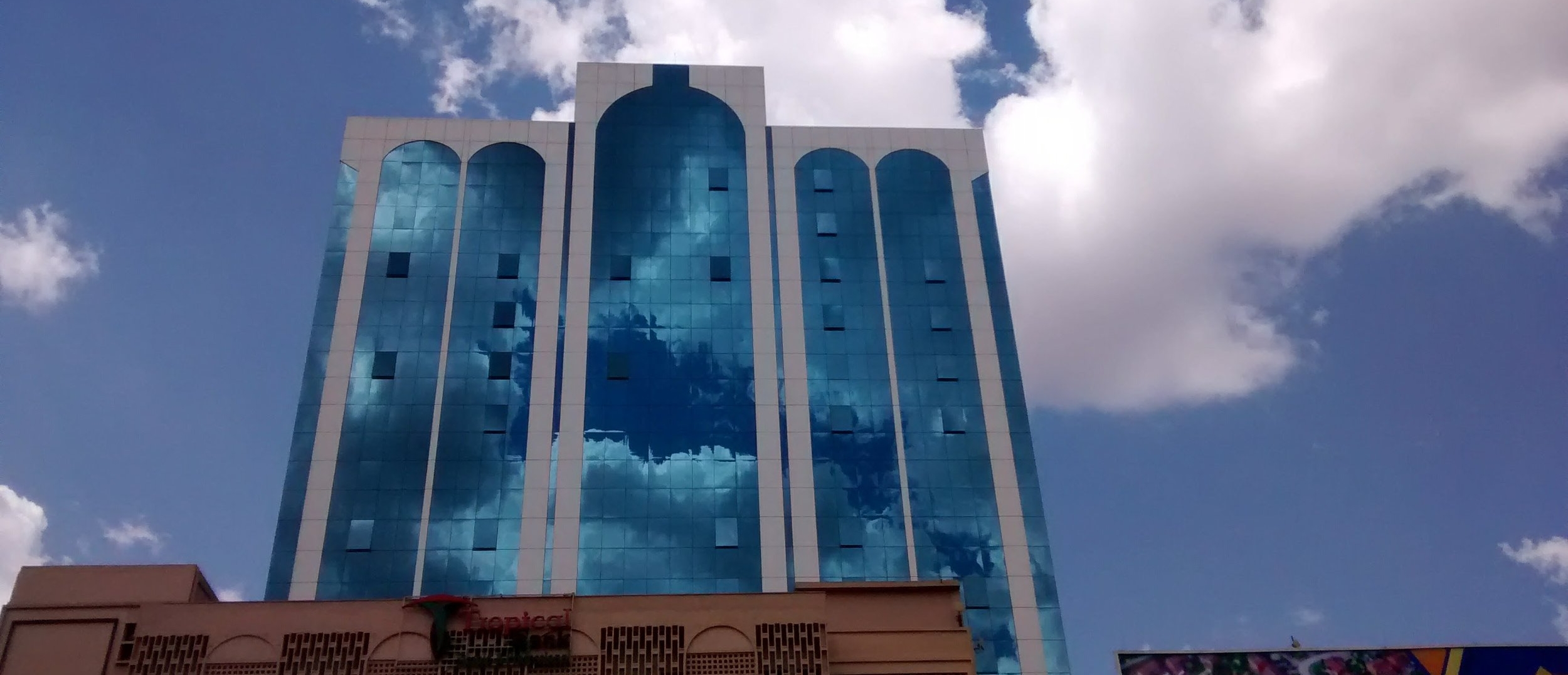Kampala: Network, connections, and the chain of the phone
/”You are the connection. But there is no connection without the network!” yells Rob, Brown’s rowdy and rather drunk friend, laughing and pointing at Brown. We are at a bar at Kisementi. Brown has invited two beautiful girls to sit with us, and they are coming over to our table. Jokingly Rob seeks to explain what it is that makes Brown able to get these pretty girls. It is not his good looks, it seems. Brown is the connection to the girls, but no connection without network, which in this case is himself – the basis from which the connection is made. Brown on his own wouldn’t get far, this seems to be implied. The girls sit down, and they are not really interested in theorizing. I feel it is time to go home. But I get permission to write it down first. The thing with connections and networks. After all, I did write a PhD about it.
Relational ontology? Yes, in a loaf of bread, please.
I’m back in Kampala. I have been away for five years, and return now, to see people who have been my family and friends through life and scholarship for more than a decade. I am of course worried; will they remember me? I better not impinge on their lives, just politely pass by. The city, however, has other plans. There is a softness in the air that seems to make substances open themselves up to each other on a molecular level. This power is rougher and sweeter. Demanding collusion, it invites opportunity, violently negotiates intimacy and breaks all that seems to take firm shapes wide open. So I stay out in the night. Allow myself to be both network and connection, and let it take me back to the people and places that I have missed.
The next day I’m hanging with Johnson at the new Firebase Studios. Well new to me, at least. Still in Kamwokya. As we heap our plates with matoke, rice, meat, g-nut sauce, pumpkin and sweet potato for lunch, he reminds me that I was his first boss, when I employed him as a field assistant during my PhD fieldwork. I laugh but I’m also happy to recognize the continued unfolding of our friendship.
We sit down and as we do so, Johnson takes out his two phones from his pockets and places them on the table in front of us. He then tells me the curious story about the larger one of the phones, an LG smartphone with an oddly curved shape. A few months back he was coming back from work at around 2 AM. He had gone with the crew to a concert and was taking the payment home. As he was pulling up to his house, thieves attacked him. There were several assailants and they surrounded the car. “They got me.” Johnson says shaking his head at the violence ”They hit me very badly” – he shows where on his shoulder and his back –“I covered my head and laid down.”
The thieves made off with a night’s earnings and Johnson’s phone. The next day he reported it to Kira Road police station, because he knows one of the police officers there. The police wanted to help him, but also made it clear that money and phones are difficult to find in Kampala’s hodgepodge of deals and exchanges. Johnson bought a new phone, necessary for his work as manager of his older brother, the music star Ghetto President Bobi Wine and his Firebase crew. And so, with the new phone, he tried to make back the money that was lost.
A few weeks later Johnson got a message from the man who runs the shop where John bought the phone that later was stolen. A young man had come to his shop to sell him a phone. The shop owner had recognized the phone that was offered. But he wasn’t sure. So he took a picture of it, and sent it to Johnson on WhatsApp. John also recognized the phone, “I was like yeah, that’s my phone.”
The shopkeeper and Johnson arranged for the guy who was trying to sell the phone to come to Kamwokya and they arrested him. Johnson’s friend at the police station helped. The seller of the phone told them that he had gotten the phone from someone else to sell on his behalf. They then went looking for the friend of the guy selling the phone. They found him, and took him to the police station. He was interrogated and confessed that it wasn’t his phone, but he had gotten the phone from someone else. “Like, he had got the phone from the thief,” says Johnson, while I sip my coke and the girl comes to clear our plates from the table.
By now the thief knew that Johnson was looking for him, and he had gone into hiding. But the search party found out about his whereabouts. They blocked off a street in the city on both ends, so the thief could not escape. They caught him and brought him to the police station. “They got him and about four other guys,” Johnson says. “The guy is now in Luzira [prison]. But I never recovered the money.” It was long gone before they got to the thieves. “So that is the chain of the phone” he concludes.
Throughout lunch, the phone keeps ringing. With requests for Johnson’s brother to perform at concerts, parties, weddings; with requests for assistance and sponsorship of charity events, school fees, music recordings. Johnson will take the relevant calls onwards to his superstar brother, and handle and reject others. The phone is both the connection and the network, as it is lying there, innocently on the table between us.
Johnson and the phones in front of Firebase Studios


